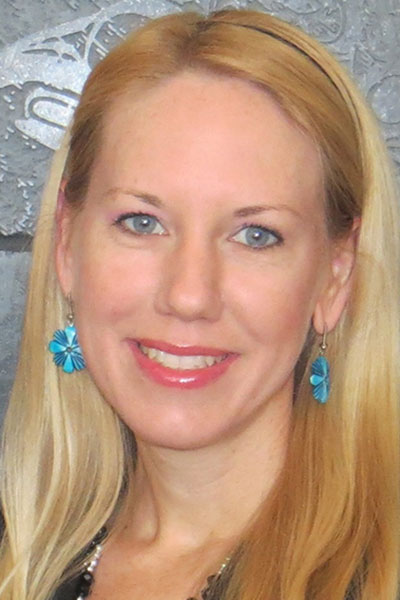Researchers increasingly observe links between diseases and the environment, leading to a holistic approach to health that encompasses the interplay of all living beings and the world around them, known as One Health.

“Using the One Health concept, clinicians and researchers can contribute their unique perspective on how human, animal, and environmental health are directly interrelated, lead transdisciplinary collaborations to advance scientific knowledge, and ultimately develop timely interventions to safeguard population health,” said Helena Chapman, MD, MPH, PhD, associate program manager for health and air quality applications in the Applied Sciences Program of the NASA Earth Science Division.
On Wednesday, May 24, Dr. Chapman will co-chair the scientific symposium Humans, Animals, the Environment: Why is the One Health Approach Needed for Emerging Health Issues? The session, designed to focus on how living beings interact with the ecosystem that may lead to adverse impacts on human health, will be held from 12–1:30 p.m. ET in Room 150 A-B (Street Level) of the Walter E. Washington Convention Center.
“Health is different for each human or animal, but in the end, there is one health,” said session Chair Muge Akpinar, MD, MPH, ATSF, dean and professor of the School of Public Health, University of Nevada, Reno. “What we are trying to do—experts from veterinary medicine, medicine, public health, and climatology groups—is identify the multidisciplinary work that needs to be done for the well-being of our environment, as well as humans and animals, because everything is connected.”

One example is how the transmission of diseases from animals to humans has been facilitated by climate change, such as higher temperatures, which impact animal habitats, forcing animals into closer contact with human populations, she explained.
“The One Health idea started with infectious diseases because when we realized zoonotic diseases impact humans and create new problems for human health, it demonstrated a need for collaboration across multiple disciplines,” Dr. Akpinar said. “And, of course, we also have globalization. Previously, Ebola was just an outbreak in a specific location, but with globalization, it is going around the world.”
The swift spread of COVID-19 underscored just how connected humans and the environment are and how the health of all can benefit from multiple disciplines working in tandem to solve a common problem.
“The COVID-19 pandemic really showed us that we were not prepared as health care providers. The magnitude of the issue was so big, and it became global very quickly,” Dr. Akpinar said. “One of the reasons we were not prepared was that we were not collaborating between the disciplines, and this kind of holistic approach to emerging diseases can help all of us if we can work together. By understanding the One Health concept, we are hoping that we will be more prepared for the next health challenge.”
An international roster of speakers will discuss how the One Health approach can promote collaborations across scientific disciplines, encouraging respiratory health professionals to use this approach to help inform decision makers when responding to emerging health challenges. They also will share examples of how clinicians and researchers can participate in research, policy work, and advocacy. Featured presentations include:
- Overview of One Health, Using Innovative Data, Helena Chapman, MD, MPH, PhD, NASA Headquarters
- Environmental Pulmonary Pathology from a One Health Perspective, Jack Harkema, DVM, PhD, DACVP, ATSF, Michigan State University
- A One Health Approach to Addressing Vector-borne and Zoonotic Diseases, Charles Beard, PhD, Centers for Disease Control and Prevention
- Climate Change Through the Lens of a One Health Approach, Muge Akpinar, MD, MPH, ATSF, University of Nevada, Reno
- Health Impacts of Air Pollution; The One Health Concept, Hasan Bayram, MD, PhD, ATSF, KOC University, Turkey
- Pneumonia, TB, Health Disparities, and One Health, Alejandro Videla, MD, Asociación Argentina de Medicina Respiratoria, Argentina
- One Health Collaboration, Bernadette Dunham, DVM, PhD, George Washington University
“The first step in the One Health approach is to increase awareness about the problem because when we can increase awareness, then discussions start to happen among the many different disciplines and health care providers,” Dr. Akpinar said. “We are hoping that later on, this will be a foundation for more innovative solutions. We need to talk to each other. It’s not working if everybody stays in their discipline.”
Drs. Akpinar and Chapman encourage conference attendees to visit the NASA Hyperwall at ATS 2023 Exhibit Hall, where NASA researchers will present talks with data visualizations that highlight the use of Earth observations for an array of public health applications, including air quality and infectious disease prevention and control.
“The NASA Hyperwall offers an opportunity for ATS members to interact with NASA researchers and learn about the unique vantage point of Earth-observing satellite data for respiratory health applications,” said John Haynes, program manager for health and air quality applications in the Applied Sciences Program of the NASA Earth Science Division.
The scientific symposium will be co-chaired by Mary Rice, MD, MPH, Harvard University, and Shivani Singh, MD, PhD, New York University School of Medicine.
REGISTER FOR ATS 2024
Register today for the ATS 2024 International Conference! Don’t miss this opportunity to take part in the in-person conference, May 17-22 in San Diego. Join your colleagues to learn about the latest developments in pulmonary, critical care, and sleep medicine.
Not an ATS member? Join today and save up to $540.
